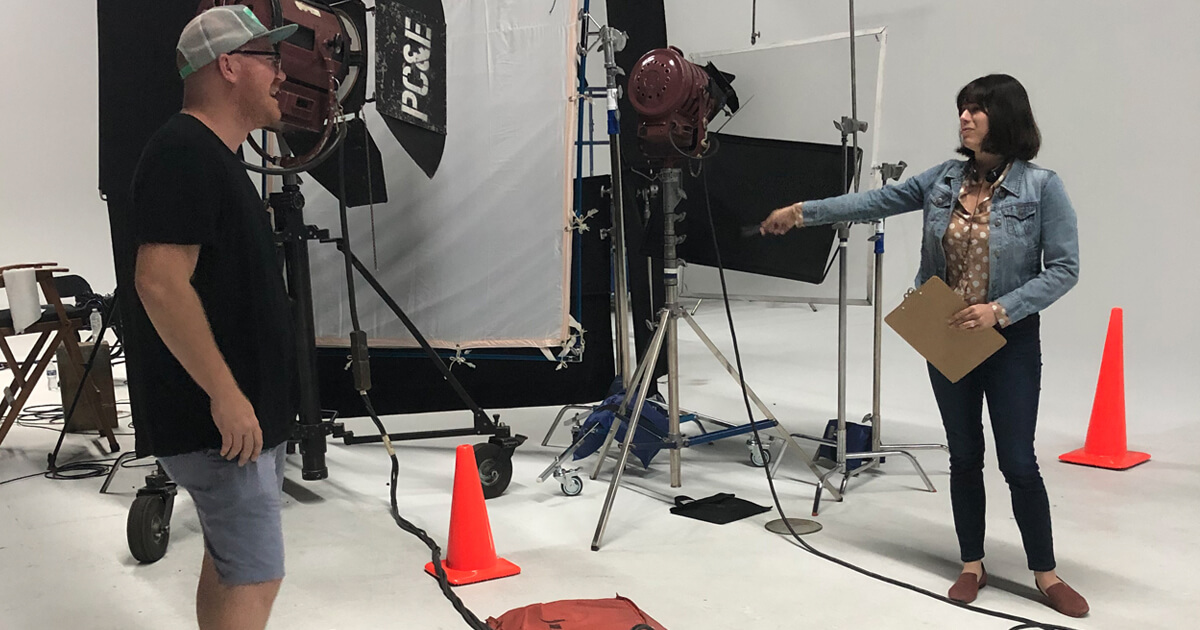Exactly How Event Production Works: A Comprehensive Take A Look At the Process
Event production is a complicated and organized procedure that calls for careful planning and implementation. It starts with developing clear objectives and understanding the target audience. Each action, from budgeting to location choice, plays an important function in making sure success. As the procedure unravels, numerous aspects should align effortlessly. The subtleties of this complex operation frequently go undetected. What are the essential stages that contribute to a remarkable event?

The Initial Planning Stage
When starting on event production, cautious preparation is vital to assure an effective outcome. The first planning stage acts as the foundation for all succeeding efforts. Throughout this phase, event manufacturers must specify the event's function and purposes plainly. Recognizing the target audience helps tailor the experience and messaging, guaranteeing significance and engagement.Producers should likewise think about the event layout, whether it be in-person, digital, or crossbreed, as this will influence various logistical elements. Selecting a suitable day and location is crucial, as it impacts accessibility and availability.Furthermore, setting up a reputable team is fundamental for separating obligations and simplifying interaction. Developing a timeline with milestones assurances all jobs are completed on time. This phase includes extensive research, including determining prospective challenges and devising approaches to alleviate risks. Inevitably, a well-structured preliminary planning stage sets the tone for an effective event production journey.

Budgeting and Resource Appropriation
In event production, efficient budgeting and resource appropriation are important for success - event production charlotte. Establishing financial specifications sets the foundation for all succeeding decisions, while source distribution methods guarantee that every component of the event is appropriately sustained. Together, these components assist maintain control over expenditures and optimize using available resources
Developing Financial Parameters
Establishing monetary criteria is crucial to the success of any type of event production, as it establishes the structure for reliable budgeting and source allowance. This process starts with defining the total spending plan, which encompasses all elements of the event, including location costs, food catering, and advertising. By determining offered funds, event organizers can focus on expenditures and designate resources appropriately. Furthermore, it is important to conduct detailed market research to expect possible costs and determine financing resources, such as sponsorships or ticket sales. Establishing clear economic criteria additionally aids in danger administration, allowing organizers to allot backup funds for unexpected costs. Ultimately, a well-defined spending plan works as a roadmap, assisting the event production team towards achieving their goals while keeping financial control.
Resource Distribution Strategies
Reliable resource distribution techniques are crucial for maximizing the impact of an event while adhering to budget plan restraints. Successful event production requires a meticulous strategy to budgeting and resource allocation. Coordinators need to focus on vital aspects such as location, wedding catering, and innovation, ensuring that funds are allocated to areas that enhance participant experience. A thorough budget plan must describe expected expenses and determine areas for possible expense savings, such as negotiating with vendors or discovering sponsorship possibilities. Furthermore, tracking expenditures throughout the planning procedure assists protect against overspending. By using critical source distribution, event manufacturers can supply a memorable experience while preserving financial responsibility, eventually adding to the total success of the event.
Location Selection and Logistics
Selecting the appropriate venue is necessary to the success of any type of event, as it sets the stage for the general experience. Place selection includes evaluating numerous elements, consisting of ability, availability, and area. Organizers have to take into consideration the target audience and the nature of the event, making sure the venue aligns with the event's goals.Logistics play a substantial duty in this process, entailing arrangements for seating, audiovisual devices, and catering services. An appropriate location must promote smooth circulation for guests and staff, boosting engagement.Additionally, evaluating potential places for features like car park, bathrooms, and emergency situation leaves is very important for safety and security and convenience. The timeline for safeguarding the place is additionally vital, as preferred areas might book promptly - event production charlotte. Comprehensive preparation and timely execution can eventually add to a smooth event experience, making location selection and logistics basic parts of effective event production.
Creative Principle Growth
While the place establishes the physical stage, innovative idea growth shapes the event's identification and narrative. This procedure begins with recognizing the event's purpose and target market, allowing event producers to formulate an engaging style that reverberates with attendees. Brainstorming sessions commonly consist of varied viewpoints, fostering innovative ideas that straighten with the event's goals.Once a motif is established, visual elements such as color combinations, signage, and style are designed to enhance the overall atmosphere. Narration methods may additionally be incorporated to develop an interesting trip for individuals, guaranteeing a memorable experience. Furthermore, factors to consider concerning home entertainment, activities, and interactive elements are straightened with the selected idea, reinforcing the motif throughout the event.Ultimately, reliable imaginative idea advancement guarantees that every facet of the event works cohesively, leaving a long-term impact on attendees and meeting the event's goals. This fundamental work prepares for succeeding preparation and implementation stages.
Collaborating With Vendors and Vendors
Successful event production rests on effective collaboration with suppliers and providers. Picking reliable companions, negotiating contracts properly, and making certain prompt deliveries are vital steps in this process. Each of these elements contributes significantly to the general success and smooth execution of an event.
Picking Reliable Partners
Exactly how can event organizers assure a smooth production experience? Selecting trusted companions is vital in achieving this goal. Event coordinators need to conduct extensive study to identify suppliers and distributors with a proven track record of quality. This includes examining referrals, evaluating portfolios, and evaluating consumer comments. Planners must focus on partners who show professionalism, prompt interaction, and a willingness to collaborate. Building solid relationships fosters count on and allows quick analytical during the event. Additionally, it is beneficial to select local vendors who comprehend the venue and regional logistics. Eventually, an effective event hinges on the harmony between organizers and their partners, ensuring that every aspect of production runs efficiently and efficiently.
Negotiating Agreements Effectively
Reliable arrangement of agreements is a crucial action in the cooperation in between event planners and their vendors and distributors. This procedure entails clear communication of expectations, deliverables, and timelines. Planners should conduct detailed research on market rates and industry standards to develop a standard for settlements. It is necessary to create a joint atmosphere, encouraging open discussion concerning terms, rates, and possible backups. Planners need to also prioritize understanding the vendor's capabilities and limitations to straighten their needs properly. Adaptability can result in mutually helpful arrangements, cultivating lasting connections. Crafting well-defined agreements that include certain efficiency metrics can help assure responsibility, inevitably bring about effective event implementation and satisfaction for all celebrations involved.
Guaranteeing Timely Deliveries
Timely distributions are necessary for the smooth implementation of any kind of event, requiring thorough partnership between planners and their suppliers and vendors. Effective communication is vital, as it helps develop clear expectations regarding distribution timetables, amounts, and specific demands. Planners typically develop in-depth timelines to describe important landmarks, ensuring all parties remain aligned throughout the process. Routine check-ins with vendors can help identify potential delays early, allowing for proactive solutions. Additionally, constructing solid connections with reliable providers promotes count on and accountability, which can result in far better solution and prioritization. By prioritizing these collaborative initiatives, coordinators can reduce disruptions, therefore enhancing the total efficiency of event production and ensuring that all essential products and solutions show up as prepared.
Advertising and Promotion Techniques
While arranging an event, the success of advertising and marketing and promo approaches visit this website can considerably influence presence and involvement. Efficient strategies you could check here usually consist of a combination of electronic advertising, conventional advertising and marketing, and grassroots outreach. Using social media systems allows for real-time communication and targeted advertising, getting to certain demographics efficiently. Email advertising and marketing campaigns can better engage possible attendees with individualized content and reminders.Collaborations with influencers or sector leaders can also boost trustworthiness and expand reach. Producing interesting content, such as videos or blog sites, helps to create buzz and sustain rate of interest leading up to the event. In addition, leveraging early-bird discounts and special rewards can incentivize ticket purchases.Promoting through standard networks, such as posters or local media, stays pertinent, especially in community-focused events. A complete approach that integrates several methods warranties maximum visibility and interaction, inevitably adding to the event's success and the creation of an unforgettable experience for guests.
On-Site Implementation and Management
On-site execution and monitoring are important elements that figure out the general success of an occasion. Reliable sychronisation during the event assures that all elements line up with the prepared program. Event managers manage logistics, consisting of vendor sychronisation, devices setup, and guest services. Keeping an eye on timelines and attending to any kind of unexpected concerns are basic for preserving a seamless experience.The staff plays a significant role, as experienced employees are accountable for different jobs such as registration, information circulation, and technological support. Interaction amongst employee is important; it fosters a joint setting and allows quick resolution of challenges.Additionally, safety and security procedures must be abided by, guarding the wellness of all attendees. Post-event analyses are likewise component of on-site management, giving insights for future renovations. By concentrating on these aspects, event manufacturers can create remarkable experiences that satisfy or go beyond guest assumptions while accomplishing the event's objectives.
Regularly Asked Concerns
Just how Do I Select the Right Event Motif?
Choosing the appropriate event theme includes considering the target market, event function, and place. Researching present fads and gathering input from stakeholders can likewise motivate creative concepts that resonate and develop a remarkable experience.

What Prevail Errors in Event Production?
Common blunders in event production typically consist of insufficient planning, bad communication amongst staff member, budget plan mismanagement, neglecting to take right into account have a peek at this website the target market's needs, and falling short to carry out a comprehensive post-event evaluation for future enhancements.
How Can I Determine Event Success?
To measure event success, one can examine attendee fulfillment, engagement degrees, budget plan adherence, and post-event responses. Key efficiency indicators, such as ticket sales and social networks communications, likewise provide useful understandings into general effectiveness.
What Should I Do if It Moistens the Event Day?
In case of moisten the day, the organizer must carry out backup plans, such as protecting outdoors tents or moving activities inside your home. Interaction with attendees about adjustments is necessary to assure a smooth experience despite weather condition difficulties.
Just How Can I Ensure Attendee Interaction Throughout the Event?

Comments on “Charlotte-based events that stood out thanks to expert production”